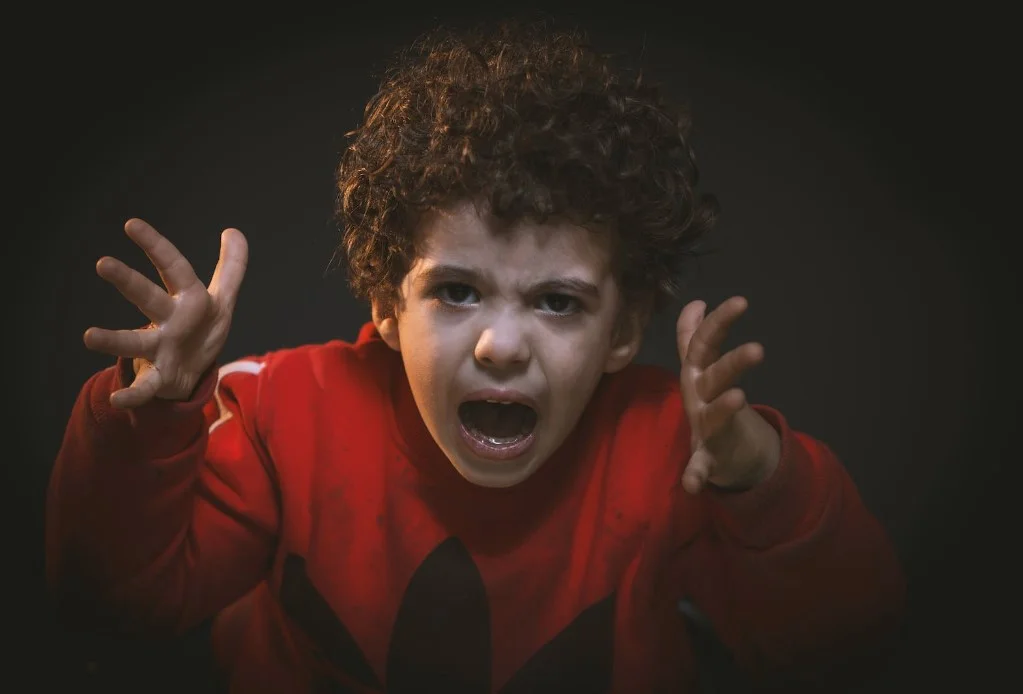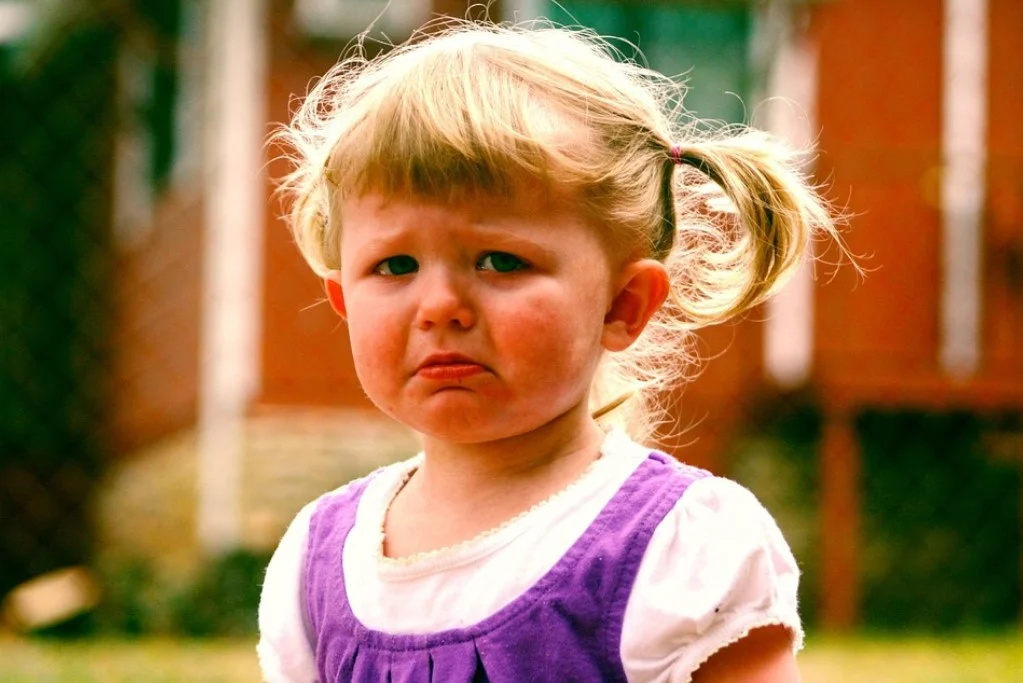Like many parents, you’ve probably wondered whether aggressive behaviors like kicking, hitting, or biting are early signs of behavioral problems in your toddler. Is your child going through a phase they will eventually outgrow, or should you worry?
Your concern is genuine, especially if you have a hyperactive preschooler. I aim to write this article to help parents understand some common reasons for toddler aggression when to worry, and how to effectively handle kids to reduce disruptive behaviors.
If that sounds like something you’d like to learn, keep reading.
Understanding Why Your Toddler Acts Out
First, it is important not to blame yourself for your child’s disruptive behavior, and you definitely shouldn’t worry about other parents judging you, either.
Here’s why.
Feeling bad about your parenting skills shifts your focus to unhelpful thinking patterns, such as:
- Beating yourself up for being clueless about managing your child’s behavior
- Worrying that your child may grow up to be a bully
- Shifting the blame to your partner for not helping you raise the child well
- Blaming other kids for always getting on your child’s nerves
These types of thinking prevent you from learning effective ways to respond to your child’s aggressive behavior and are less likely to result in any positive outcome for your child.
Now that we’re clear on the importance of avoiding finger-pointing, let’s see some common reasons for toddler aggression.
Early Stages of Brain Development
According to research, the brain region responsible for regulating emotions and impulsive behavior (prefrontal cortex) isn’t fully developed in children under the age of 3. This explains why they mostly rely on parents and caregivers to help control their emotions.
Consider how difficult it is for you ― an adult ― not to flip your lid when faced with emotionally charged situations. Now, imagine how frustrating it can be for a child who can barely express their feelings using coherent sentences.
Your child isn’t intentionally being aggressive; they simply don’t have the capacity to deal with strong emotions at such a young age.
Your Toddler Is Experimenting
Children tend to be highly curious in their preschool years, exploring and experimenting with just about anything. Sometimes, your kiddo might want to know what will happen if they hit their sibling, pull mommy’s hair, or sink their teeth into another child’s arm during play.
While these actions are inappropriate, children may use them to test their social skills or exert their independence. Either way, parents must learn healthy ways to address toddler aggression when to worry, and when to call the pediatrician.
Parent’s Unhelpful Behavior
Parenting styles and how parents behave in front of kids can contribute to toddler aggression. Children can learn violent reactions if they constantly witness aggressive behavior from parents, caregivers, or older siblings. Remember, young children are impressionable and learn by imitation.
Also, punitive or hostile parenting styles can make young children resort to physical outbursts when stressed.
That said, adopting a permissive parenting style ― letting children do as they please ― doesn’t help either.
How to Respond to Toddler Aggression

Catch Mild Misbehavior Early
Many parents don’t pay attention to early signs of frustration in toddlers until children throw tantrums.
Keep an eye out for mild misbehaviors, such as:
- Frowns, clenched jaws, or furrowed brows
- Grunts or whining
- Tensed muscles or feet stomping
- Saying words like, “no” or “don’t want” with increasing intensity
Address such behaviors using appropriate discipline (not punishment). Discipline means instructing children using a firm tone while praising any good behavior, no matter how little. The goal is to improve their behavior, not dispense harsh consequences.
Help Your Child Manage Their Emotions
Chatting about feelings can help your child recognize and regulate their emotions. However, this response is only practical if the child behaves aggressively without being destructive.
Use statements that could help your toddler understand why they feel the way they do. For example:
- “Molly took your toy without asking, which made you angry, right?”
- “You feel hurt because I didn’t pay attention to you.”
- “Can you tell me more about what else made you upset?”
Stop the Aggressive Behavior and Calm Your Child Down
If your child is being destructive, take action to stop the harmful behavior and protect them and others.
Restate the rule or limit (for example, “We don’t hit people”), and physically remove the toddler from the situation, taking care to do this as calmly as possible.
Validate Your Child’s Difficult Feelings
Your child might be a toddler, but their emotions are valid, and it is important to validate those feelings. Although it can be tricky, getting through to your child and calming them down is much easier if you acknowledge their feelings.
You could say something like, “I understand that this must feel very unfair to you,” or “I can see why that would upset you.”
Validating your child’s feelings isn’t condoning misbehavior. Rather, it is acknowledging how they feel in a bid to help them calm down.
Stay Calm
Take deep breaths to calm you when your little one is having a meltdown. You want to be as calm as possible to address inappropriate behavior objectively.
As mentioned, hostile parenting can contribute to toddler aggression. And while staying calmly dealing with an out-of-control 2-year-old isn’t the easiest thing for many parents, it is crucial for positively influencing the child.
It might not be obvious, but how you respond when your child behaves badly influences their emotional response to stressful situations. Research shows that a child’s emotional regulation hinges largely on their parent’s emotional stability.
Think of it this way: an angry father has as much chance of calming his angry toddler as an alcoholic parent has of preventing their child from picking up the habit.
Bottom line: Avoid scolding, threatening, yelling, or using shaming language ― these measures rarely produce positive outcomes.
Tips to Reduce Instances of Aggressive Toddler Behavior
It’s normal for toddlers to display aggressive behavior occasionally. In fact, the American Academy of Child and Adolescent Psychiatry (AACAP) says emotional outbursts are equally common among all toddlers, with many throwing at least one temper tantrum per day.
Some kids may act out with their bodies during temper tantrums ― kicking, hitting, or throwing objects. Others may display aggression without physical actions, for example, withdrawal, verbal outbursts, or non-compliant behaviors.
Whichever form of aggression is common with your toddler, here are some things you can do to shape your child’s behavior and teach them to express difficult feelings appropriately.
- Avoid threats: Reinforcing the desired behavior is usually more effective than threatening kids. For example, you could tell your child to use their words when they are angry rather than using threatening statements like, “Stop it or else.”
- Teach your child the rules: As a parent, one of your key roles is teaching your kids what to do and what not to do ― they won’t know the rules unless you teach them. Remember to address your toddler promptly when they break an important rule. This way, they will grasp that the behavior is unacceptable and learn the appropriate behavior instead.
- Guide your toddler to explore compromises: Help your kiddo learn the power of using a firm tone when saying “no,” turning away, or finding alternatives instead of resorting to physical actions. By teaching them to use words, you show them how to resolve conflicts peacefully without throwing a fit.
- Praise mature behavior: Give your little one a big thumbs up when they behave well instead of resorting to violence. Remember to give plenty of praise and reinforcement when you catch them being gentle and kind.
Toddler Aggression: When to Worry

Although some degree of aggressive behavior is normal in kids under age 5, it is crucial to understand toddler aggression when to worry, and what to do if your child seems to grow more violent despite your efforts.
You should be worried if the disruptive behavior interferes with your child’s ability to engage, learn, or explore. It is usually best to speak with a pediatrician if your child is repeatedly:
- Barred from playing with other kids due to violent behavior
- Removed from preschool or other public settings because they are hurting other kids
In addition, researchers suggest seeking professional help if the child shows any of the following high-risk tantrum patterns, as they may be early warning signs of an underlying mental health concern:
- Your child intentionally hurts themselves or others during temper tantrums. For example, hitting, biting, or injuring themselves or others.
- Your toddler often shows violently destructive behavior toward caregivers or other adults.
- Your toddler has trouble calming down once ticked off.
- Your child has frequent tantrums that usually last more than 25 minutes.
Understandably, being unable to effectively communicate strong feelings can make young children behave violently. That said, it might be time to seek additional support if the violent behavior becomes more intense and occurs rather frequently.




